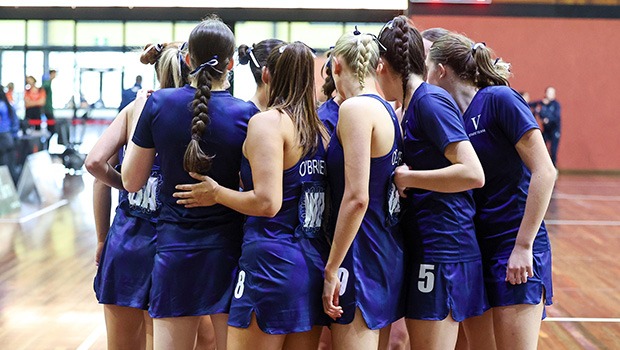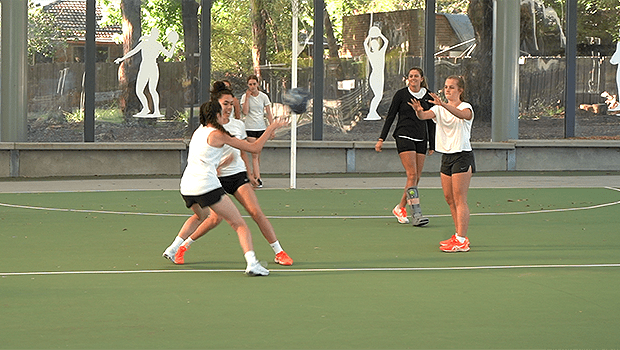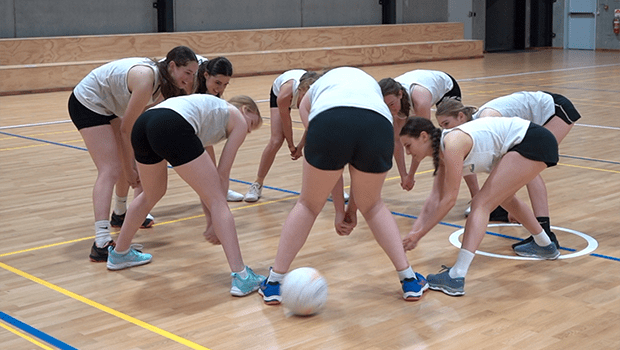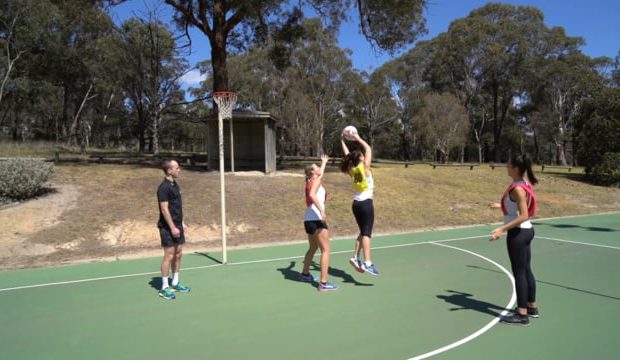
A coach emailed last week with a problem that’s all too common in netball: How do you avoid slow starts?
It’s a challenge for all coaches, and not just at the local level. It was only last year that Super Netball franchise Sunshine Coast Lightning were unable to win the first quarter of a game for the first three games of the season, forcing them to play catch-up every week.
What can we do to help our players ensure they’re switched on and ready to put strong netball out on court in the opening minutes of a game?
Here are a few simple ideas worth considering:
BUILD THROUGH THE WARM-UP
This is arguably the most common contributing factor in teams that consistently start games slowly – they’re simply not ready to go, and it all stems from the pre-game warm-up.
Does your team spend the first 10 minutes of warm-up chatting, doing their exercises at half-pace and stretching poorly, followed by more chatting while they warm up their passing, and then eventually lifting their heart rate a little when they move into a team drill?
LOOKING FOR NETBALL DRILLS? REGISTER NOW TO ACCESS OUR 400+ COACHING VIDEOS AND SESSIONS!
If players have barely broken a sweat in warm-up, how do we then expect them to step out on court and instantly go from 0 to 100?
Try thinking of your warm-up as an extension of the game – the first of five quarters. Build the intensity through the warm-up, aiming to hit close to match intensity (both physically and in voice) in the last five minutes before the players step on court.
Encourage your players to get to the courts five minutes earlier and get their chatting out of the way before warm-up starts. Once you’re in warm-up mode, try to ensure that any chat is game-specific.
As the coach responsible for a group of young players, it’s up to you to set the tone.
MIX IT UP
While there’s certainly value in having a set, structured team warm-up, changing up a drill or two every so often is a good way to ensure players aren’t just going through the motions every week.
Add a different drill towards the end of the warm-up that they can perform well but also challenges them to think, and see if it helps them switch on.
GOALERS TAKE RESPONSIBILITY
Have you ever felt like you’re dominating defensively and in general play during the first quarter of a game, but the scoreboard doesn’t reflect it?
If your goalers aren’t arriving early to put up shots for 10 minutes before the game (and practising throughout the week) don’t expect them to be red hot right out of the gate.
Speak to your goalers about accountability and how putting up pre-game shots is part of the responsibility of having GS or GA on your bib, and let’s loosen up those nervy shots before the game, rather than in the first quarter.
HAVE A SET PLAY
A 15/U team I coached a few years ago had a habit of always conceding 3-4 goals before they’d finally wake up and put one on the board.
We tried everything during warm-up, to no avail, but the solution turned out to be having a strong set play on the centre pass to start each game (or even each quarter).
Every player on the team knew that that structure was the first thing we were going to set up, and nine times out of 10 we’d get a shot out of it, which got the scoreboard ticking over and helped everyone relax.
Find a set play your team can execute consistently and effectively, and give it a go.
ENCOURAGE YOUR PLAYERS TO THINK AHEAD
Often there’s a good chance your players will know some of their opposition, and particularly later in the season once you’ve already played most teams.
Before the game, ask your players to tell you something about the other team or an opponent they might be playing on – a strength they’ll need to combat or a weakness they can look to exploit.
For some players, it will be enough to help put their brain in game mode, and get them firing early.
PRACTICE THOSE GOOD STARTS
While it can be hard to replicate your match night at training, finishing a session with some matchplay scenarios that replicate the start of a game is a concept worth trying.
Pick four attackers in positions, and tell them they have five centre passes in which to score 3-4 goals (depending on their age and ability).
After five centre passes, change the combination and start again. While it’s not quite the same as match night, it does force players to be on their game from the very first centre pass, and remain focused for 2-3 minutes, which can be the difference between getting off to a great start, or a poor one.
PLANNING NETBALL TRIALS THIS YEAR? CHECK OUT NETBALLTRIALS.COM – YOUR ONE-STOP SHOP FOR NETBALL TRIALS ADMIN!





